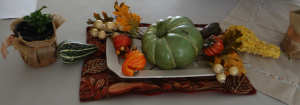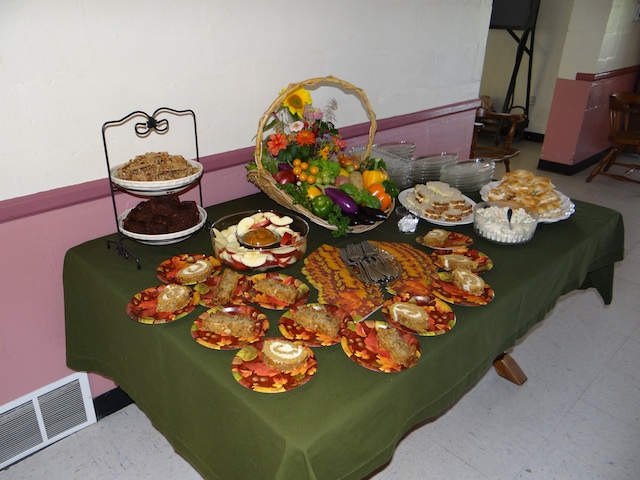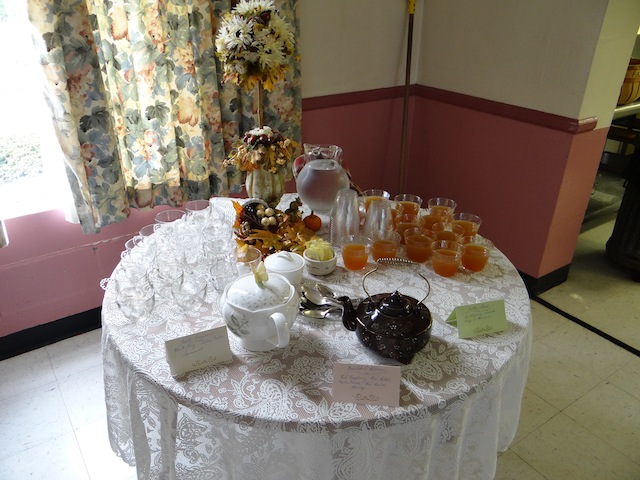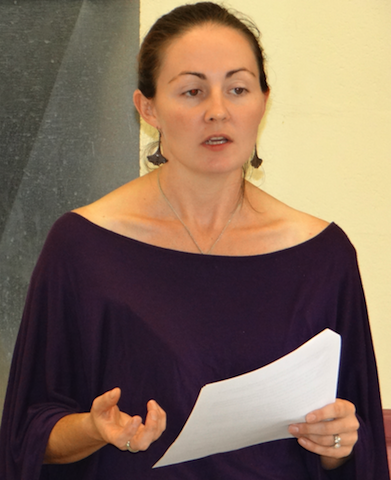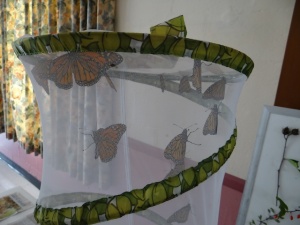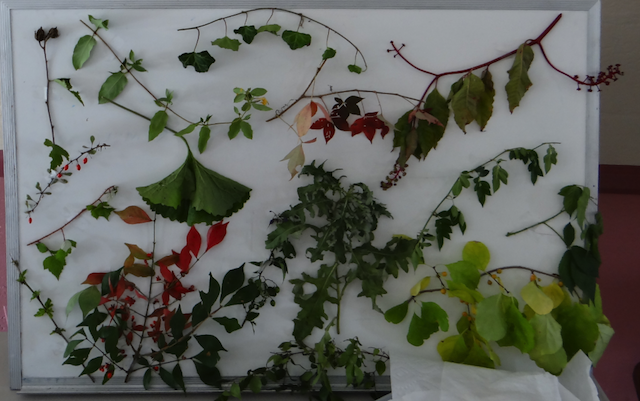We were pleased to have another balmy Autumn day for our October meeting. All the tables were decorated with delightful fall vignettes of vegetables, gourds, leaves and flowers–something pleasant to look at while chatting with friends.
I will start asking for a menu from our hostesses because– Boy Howdy! they are serving some truly scrumptious goodies! That decorative basket was designed by Barb Childs and went to the District V Semi-Annual Meeting the next day.
We were encouraged to sample the various teas that our guest speaker Kate had provided, demonstrating the complex flavors that herbs can impart to beverages.
Our program for October, “Pharmacy in Your Backyard” was about growing, harvesting and using herbs from our gardens as medicine and was given by Katie Corbin. She had prepared her program using Powerpoint slides, but unfortunately her computer and the projector refused to become properly acquainted. Lucky for us, she knows her subject matter well and carried on in lecture format, fielding a great number of questions and comments from her audience.
Here is a copy of her handout for the program which will open in a separate page
with a pdf file: The Pharmacy in Your Backyard
This is a website she recommends: Medicinal Herb Chart
If we can upload her Powerpoint presentation in the future, we can put it here as well.
Carol LaFon showed us the last of her raised Monarchs. She brought them in a special netted cage and would release them outside the Union Bridge community center.
The Hort Board
Sue introduced the Hort Board. It was loaded with plants retrieved from a simple walk around the block Westminster. The question: What is it? Is it invasive or a “Thug”?
Some of the samples were:
Rose of Sharon, Japanese Honeysuckle, English Ivy,
Virginia Creeper, Poke, Japanese Barberry, Garlic Mustard
Burning Bush, Privet, Canadian Thistle
Oriental Bittersweet, Climbing Nightshade
If a plant is not native and it spreads wildly or seeds voraciously and causes detriment to native plants and their communities, it is invasive. Some plants are just “thugs”–they take up too much space and make us grit our teeth in annoyance as we dig them out or pluck up their seedlings. They are part of the native plant community and thus don’t harm their environment. However, a harmless native plant in one region may become invasive in a different ecosystem.

